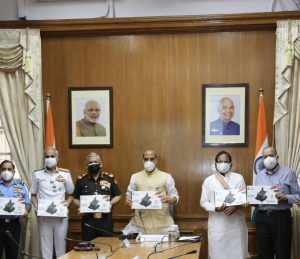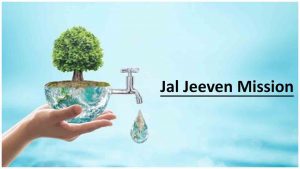Today Current Affairs: 8th June 2021 for UPSC IAS exams, State PSC exams, SSC CGL, State SSC, RRB, Railways, Banking Exam & IBPS, etc
Table of Contents
Pran Vayu Devta Pension Scheme (PVDPS): Haryana:

Amid the ongoing pandemic, several states including Haryana witnessed a crisis of medical oxygen that was needed for severely ill Covid-19 patients. To avoid such a deficit in the future, the Haryana government has come out with what it says is a “unique and first of its kind initiative”
- The state government has taken an initiative to honour all those trees which are of the age of 75 years and above and have served humanity throughout their life by producing oxygen, reducing pollution, providing shade and so on.
- Such trees will be identified throughout the state and these will be looked after by involving local people in this scheme.
- For maintenance of trees older than 75 years, a “pension amount” of Rs 2,500 would be given per year in the name of PVDPS.
- This ‘tree pension’ shall continue to increase every year, on lines similar to the Old Age Samman Pension Scheme in the state.
- The pension shall be given by the Urban Local Bodies department for the upkeep of the trees, installing plates, grilles etc.
Oxy Van (Oxygen Forest):
- Oxy Van are identified pieces of land, on which as many as 3 crore trees would be planted.
- Oxy Forests will be planted on land ranging from 5 acres to 100 acres in the cities of Haryana.
- The Oxy Vans will occupy 10 per cent of the 8 lakh hectares of land across Haryana.
World Food Safety Day:

The Union Minister for Health and Family Welfare virtually attended the World Food Safety Day (7th June) celebrations organized by the Food Safety and Standards Authority of India (FSSAI).
- The World Health Organization (WHO) and the Food and Agriculture Organization of the United Nations (FAO) jointly facilitate the observance of World Food Safety Day, in collaboration with the Member States and other relevant organizations.
- It was first celebrated in 2019, to strengthen the commitment to scale up food safety made by the Addis Ababa Conference and the Geneva Forum in 2019 under the umbrella of “The Future of Food Safety”.
- Aim: To draw attention and inspire action to help prevent, detect and manage foodborne risks, contributing to food security, human health, economic prosperity, agriculture, market access, tourism, and sustainable development.
- 2021 Theme: Safe Food for a Healthy Tomorrow.
Swachh Bharat Mission Grameen Phase-II:

Swachh Bharat Mission (Grameen) [SBM (G)] Phase-II is making steady progress amidst Covid-19 with 1249 villages declared ODF(Open Defecation Free) Plus.
- SBM (G) Phase-II was approved in February 2020 by the Ministry of Jal Shakti.
- ODF Plus entails that ODF behaviors are sustained, and every village has access to solid and liquid waste management.
About SBM(G) Phase-II:
- It emphasizes the sustainability of achievements under phase I and provides adequate facilities for Solid/Liquid & plastic Waste Management (SLWM) in rural India.
- Implementation: SBM (G) Phase-II will be implemented from 2020-21 to 2024-25 in a mission mode with a total outlay of Rs. 1,40,881 crores.
- Funding Pattern and Norms: The fund sharing pattern between centers and States will be 90:10 for the North-Eastern States and the Himalayan States and UT of J&K; 60:40 for other States; and 100% for other Union Territories.
- Funding Norms for SLWM have been rationalized and changed to a per capita basis in place of the number of households.
- The SLWM component of ODF Plus will be monitored on the basis of output-outcome indicators for 4 key areas:
- Plastic waste management,
- Biodegradable solid waste management (including animal waste management),
- Greywater (Household Wastewater) management
- Fecal sludge management.
‘20 Reforms In 2020’: Defence Sector:

The Defence Minister released an E-booklet titled ‘20 Reforms in 2020’ highlighting the major reforms undertaken by the Ministry of Defence (MoD) in 2020.
Chief of Defence Staff & Department of Military Affairs:
- The appointment of India’s first Chief of Defence Staff (CDS) and creation of the Department of Military Affairs (DMA) were among the major decisions taken by the Government.
- General Bipin Rawat was appointed as the first CDS who also fulfilled the responsibilities of Secretary, DMA.
- The post of CDS was created to increase efficiency & coordination among the Armed Forces and reduce duplication, while DMA was established to ensure improved civil-military integration.
Self-Reliance in Defence:
- To promote ‘Make in India’ in the defence sector, a list of 101 defence items for which there would be an embargo on the import was notified in August 2020, while Defence Acquisition Procedure 2020 was unveiled in September 2020.
- There was a 10% budget increase in 2020-21 over the previous year.
Increased Defence Exports:
- The increased partnership with the private sector has led to a substantial rise in defence exports.
- The value of total defence exports rose from Rs 1,941 crore in 2014-15 to Rs 9,116 crore in 2019-20. Also, for the first time, India figured in the list of defence equipment exporting nations, as the exports expanded to more than 84 countries.
Defence Acquisitions:
- First, five Rafale fighter aircraft arrived in India in July 2020 and several more since then, adding firepower to the arsenal of the Indian Air Force.
Reforming Defence R&D:
- To promote innovation by young minds, five Young Scientists Laboratories of Defence Research and Development Organisation (DRDO) were launched in 2020.
- DRDO has joined hands with the private sector in design & development and identified 108 Systems & Subsystems for the industry to design, develop and manufacture.
Digital Transformation:
- Directorate General Quality Assurance (DGQA) started online Pre-Delivery inspection in May 2020 to address security threats.
- The Armed Forces Tribunal began a digital hearing for the first time in August 2020.
Strengthening Border Infrastructure:
- Reforms of processes and workflows within Border Roads Organisation (BRO) enabled it to achieve targets ahead of schedule, in some instances.
- World’s longest Atal tunnel above 10,000 feet, at Rohtang on the Leh-Manali Highway, was inaugurated.
Participation of Women in Armed Forces:
- Ten streams of the Indian Army were opened for giving Permanent Commission to Short Service Commission (SSC) Women officers.
- All Sainik Schools were thrown open for girl students from the academic session 2020-21.
Reforms in National Cadet Corps :
- Expanding the reach of the National Cadet Corps (NCC) to remote locations was a major announcement.
- It was decided to give preference to NCC cadets in employment in Central Armed Police Forces from May 2020.
Sea Snot’: Turkey:

Turkey’s Sea of Marmara, which connects the Black Sea to the Aegean Sea, has witnessed the largest outbreak of ‘sea snot’.
- A ‘sea snot’ outbreak was first recorded in the country in 2007.
Sea Snot and its Formation:
- It is marine mucilage that is formed when algae are overloaded with nutrients as a result of water pollution combined with the effects of climate change.
- The nutrient overload occurs when algae feast on warm weather caused by global warming.
- It looks like a viscous, brown and foamy substance.
Concerns:
- Threat to the Marine Ecosystem:
- It has caused mass deaths among the fish population, and also killed other aquatic organisms such as corals and sponges.
- It is now covering the surface of the sea and has also spread to 80-100 feet below the surface which eventually can collapse to the bottom and cover the sea floor.
- Livelihoods of Fishermen Affected:
- As the sludge is getting collected in their nets, making them so heavy that they break or get lost.
- Moreover, the mucilage coating the strings makes the nets visible to fish and keeps them away.
- Water-borne Diseases:
- It can cause an outbreak of water-borne diseases such as cholera in cities like Istanbul.
Biomedical Waste:

The report titled, “State of India’s Environment 2021,” released by the Centre for Science and Environment, said 2,03,000 kg of COVID-19 biomedical waste was produced daily in May this year and it was roughly 33% of India’s non-COVID biomedical waste.
- As per Bio-medical Waste Management Rules, 2016, Bio-medical waste is required to be segregated in 4 colour coded waste categories, and the same is treated and disposed of as per the methods prescribed under Schedule I of the Rules.
- Common methods of treatment and disposal of bio-medical waste are by
- incineration/plasma pyrolysis/deep-burial for Yellow Category waste;
- autoclaving/microwaving/chemical disinfection for Red Category waste;
- sterilization and shredding, disinfection followed by burial in concrete pit/recycling through foundry/encapsulation for White Category sharps waste; and
- washing, disinfection followed by recycling for Blue Category glass waste.
Fugitive Economic Offenders And Assets.:

Union Minister Dr Jitendra Singh addressed the Special Session of the UN General Assembly on international cooperation to combat the challenge of Fugitive Economic Offenders and Assets.
Fugitive Economic Offenders Bill, 2018
- The bill was passed by both the houses of Parliament in 2018 after the Nirav Modi–PNB fraud worth more than ₹12,000 crore and Vijay Mallya having fled the country to avoid being arrested for economic fraud.
- Objective:
- To deter economic offenders from evading the process of Indian law by remaining outside the jurisdiction of Indian courts,
- To ensure that fugitive economic offenders return to India to face the action in accordance with law.
Salient features of the Bill:
- Defining Fugitive economic offender (FEO): FEO is defined as an individual
- who has committed a scheduled offence (economic offences contained in the Schedule to this Bill) or offences involving an amount of 100 crore rupees or more and
- has absconded from India or refused to come back to India to avoid or face criminal prosecution in India.
- Special Court: It proposes to establish a special court under the Prevention of Money-laundering Act, 2002. It will be able to declare an alleged fraudster a fugitive economic offender.
- Application: A director or deputy director (appointed under the Prevention of Money-Laundering Act, 2002) may file an application before a special court (designated under the 2002 Act) to declare a person as a fugitive economic offender.
- Upon receiving an application, the special court will issue a notice to the individual requiring him/her to appear at a specified place within six weeks
- If the person appears at the specified place, the special court will terminate its proceedings under the provisions of this Bill.
- Failure to appear will result in him being declared a fugitive economic offender.
- Appeal: Appeals against the orders of the special court will lie before the High Court.
- Can the offender file a civil claim? Section 11 of the Act disqualifies those declared as offenders from either filing or defending a civil claim in court.
‘I-Familia’.:

Interpol has launched a new global database named ‘I-Familia’. It will identify missing persons or unidentified human remains around the world through the DNA of relatives.
Interpol:
- The International Police Organisation is commonly known as Interpol.
- It is an international organization facilitating international police cooperation against cross-border terrorism, trafficking, and other crime.
- Membership: INTERPOL has 194 member countries, making us the world’s largest police organization.
- The state of Palestine is its member.
- Governance: All decisions regarding the activities of INTERPOL are made by the General Assembly which is its’s supreme governing body that meets annually.
- It is ‘NOT’ a unit or part of a united nation system. It is an independent international organization.
- HQ: Lyon in France.
- Founded in: 1923.
- Each country hosts an INTERPOL National Central Bureau (NCB), which links national police with our global network. in India, CBI is the NCB.
- Interpol notices: These are international alerts/requests circulated by Interpol allowing police in member countries to share critical crime-related information.
- There are eight types of notices, seven of which are color-coded by their function. An eighth Special Notice is issued at the request of the United Nations Security Council (UNSC).
Jal Jeevan Mission:

It has been decided that in the 5 North-Western States and UTs i.e., Punjab, Haryana, Himachal Pradesh, Jammu & Kashmir, and Ladakh, implementation of Jal Jeevan Mission will be expedited.
- In these 5 states, every rural household will be provided with tap water connections by 2022, instead of by 2024.
- To enable these States/ UTs to achieve this goal by 2022, the Union Minister of Jal Shakti has approved a Central allocation of Rs. 8,216.25 Crore in 2021-22. This is more than 4 times the allocation to these States/ UTs in 2020-21.
- With this massive increase in allocation and speed of implementation, these 5 States/UTs are set to achieve ‘Har Ghar Jal’ status by 2022.
- On 15th August 2019, Prime Minister, Shri Narendra Modi announced Jal Jeevan Mission(JJM) to provide safe piped drinking water to every rural household in the country by 2024.
- In this period, Goa, Telangana, Andaman & Nicobar Islands, and Puducherry have become ‘Har Ghar Jal’ i.e. every rural household in these States/ UTs is having a tap water supply.
G7 Grouping:

Advanced economies making up the G7 grouping have reached a “historic” deal on taxing multinational companies. The deal announced involving the US, the UK, Germany, France, Canada, Italy, and Japan, is likely to be put before a G20 meeting in July.
- The first decision that has been ratified is to force multinationals to pay taxes where they operate so as to counter tax avoidance.
- The second decision in the agreement commits states to a global minimum corporate tax rate of 15% to counter the possibility of countries undercutting each other to attract investments.
- The decision to ratify a 15% floor rate follows from a declaration of war on low-tax jurisdictions around the globe announced by US Treasury Secretary Janet Yellen in April 2021, who had urged the world’s 20 advanced nations to move in the direction of adopting a minimum global corporate income tax in April.
- She that the move to put a minimum rate in place attempted to reverse a “30-year race to the bottom” in which countries have resorted to slashing corporate tax rates to attract multinational corporations.
- The US proposal had proposed a higher 21 percent minimum corporate tax rate, coupled with canceling exemptions on income from countries that do not legislate a minimum tax to discourage the shifting of multinational operations and profits overseas.
Malayalam:

GIPMER, a Delhi government hospital banned its nursing staff from speaking in Malayalam in the hospital and warned of “serious action” if they do not talk in English or Hindi.
- Malayalam is a Dravidian language spoken.
- Malayalam has official language status in Kerala, Lakshadweep, and Puducherry (Mahé)
- It is one of 22 scheduled languages of India and is spoken by 2.88% of Indians.
- Due to Malayali expatriates in the Persian Gulf, Malayalam is also widely spoken in the Gulf countries.
- Malayalam was designated a “Classical Language in India” in 2013.
- The earliest script used to write Malayalam was the Vatteluttu script.
- The current Malayalam script is based on the Vatteluttu script, which was extended with Grantha script letters to adopt Indo-Aryan loanwords.
- It bears high similarity with the Tigalari script, a historical script that was used to write the Tulu language.




